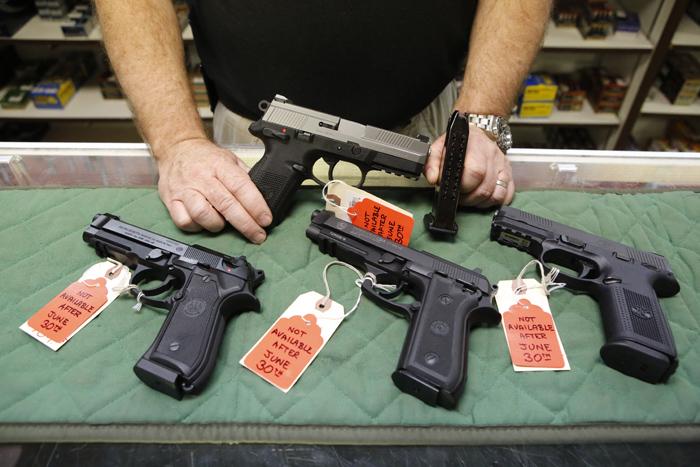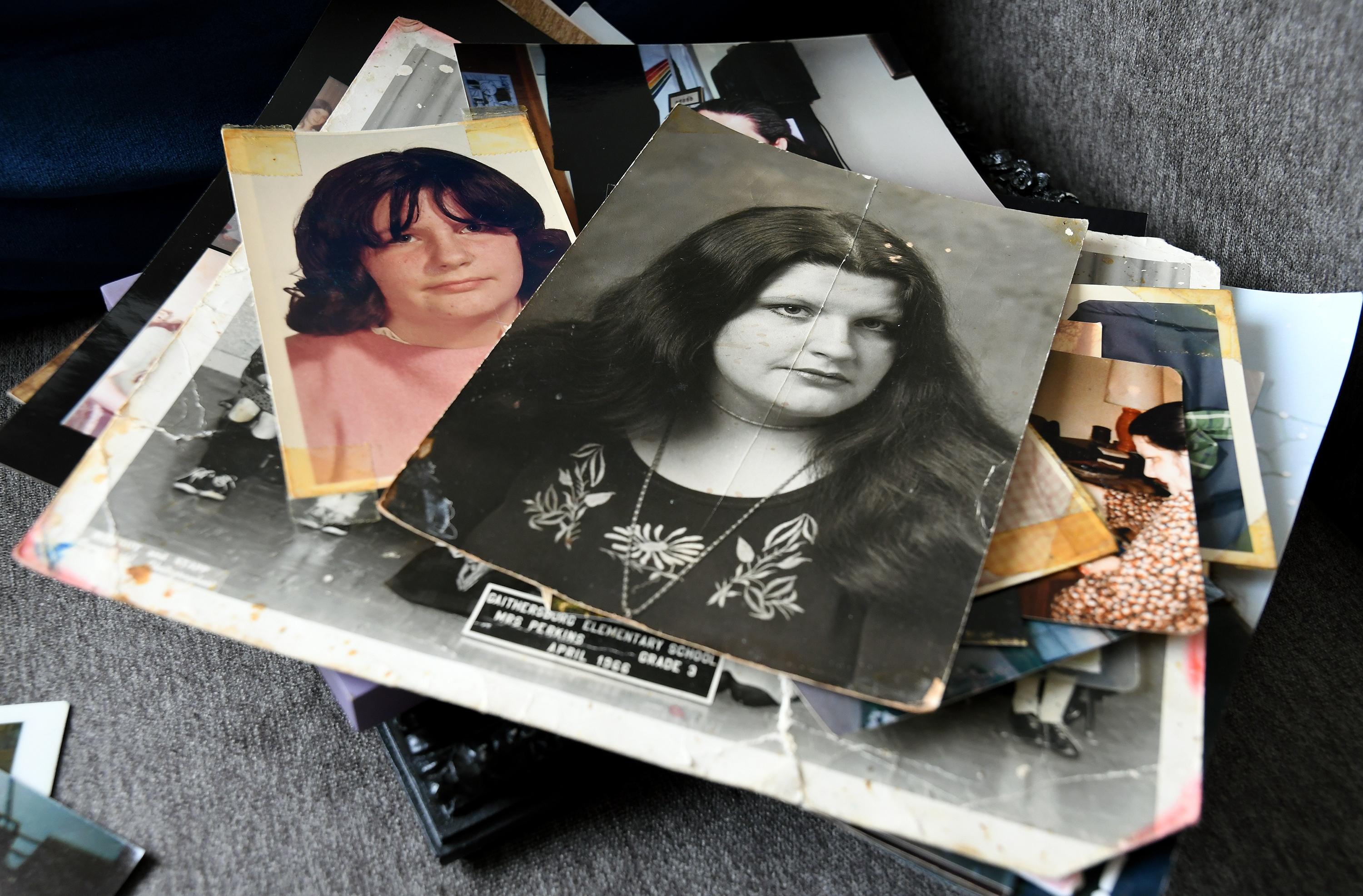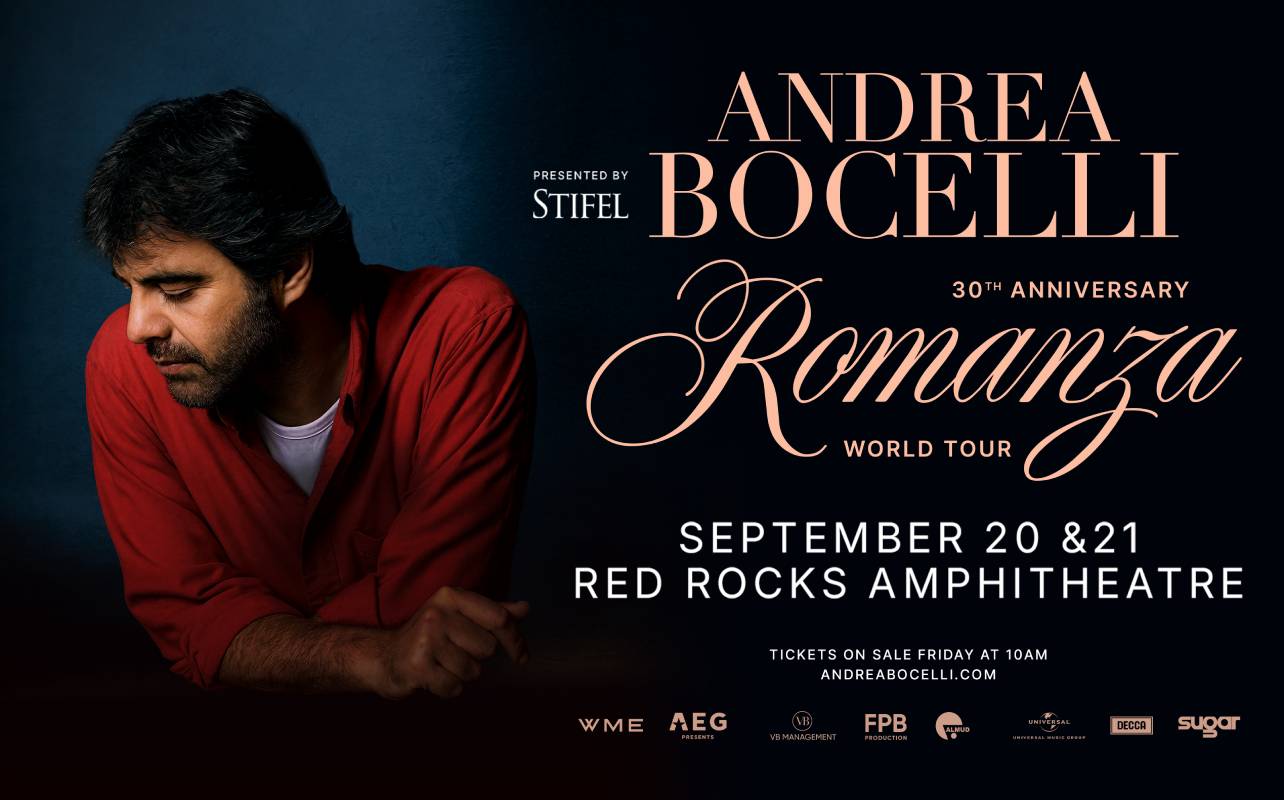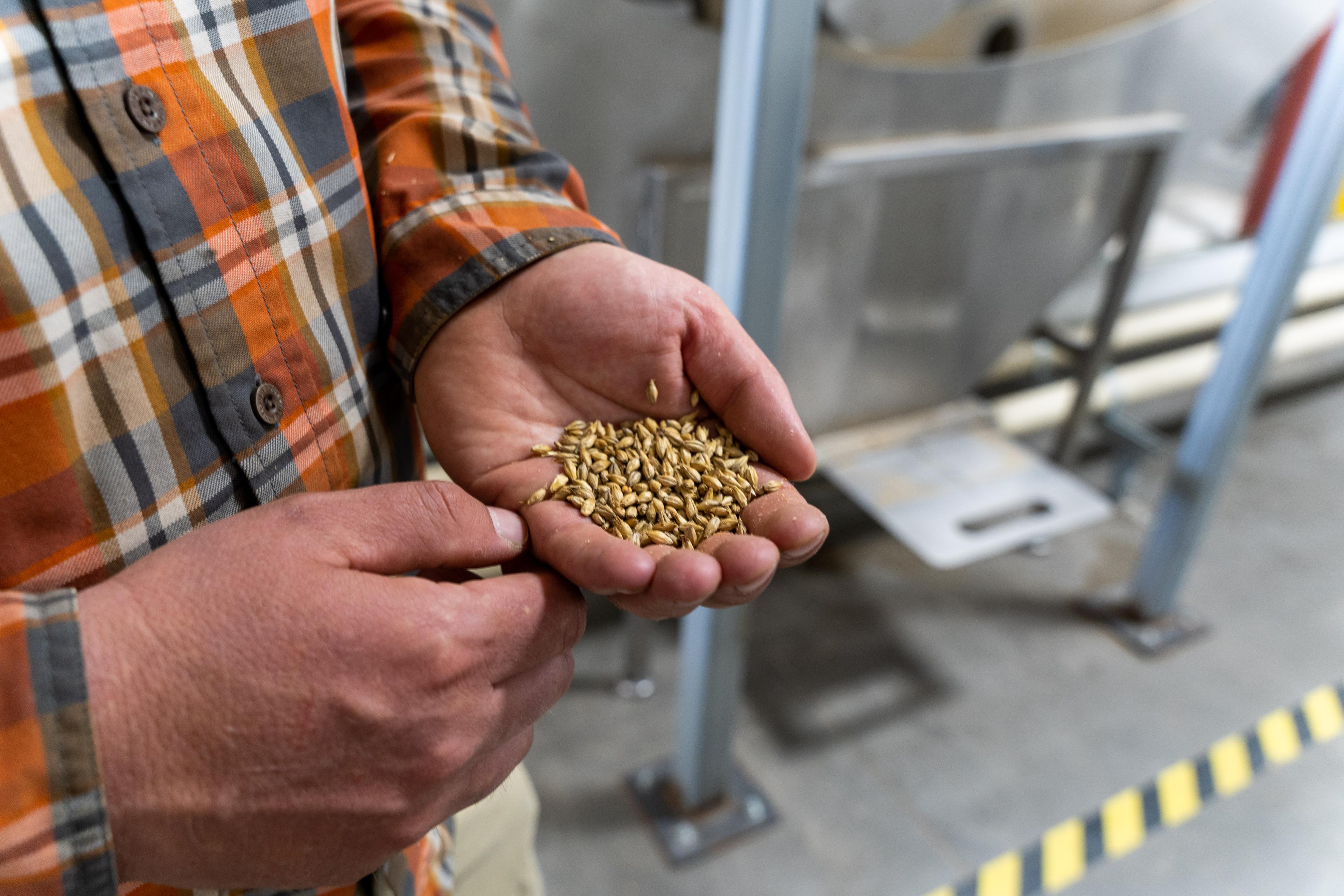

Coloradans have been on a gun buying binge for the last decade, and it can be traced back to the first election of President Barack Obama in 2008.
Gun store owners and Second Amendment advocates will often say that Obama was the best gun salesman in history. The Democrat championed limited gun control measures, but never managed to enact large-scale reforms. Still, the specter of gun control has been enough to alter the volume of gun buying in Colorado.
- Tell CPR: What Do You Want To Know About Guns?
During the election year of 2008, there was a 26 percent increase in approved background checks reported by the Colorado Bureau of Investigation. Approved background checks are a proxy for gun sales. During George W Bush’s two terms in office, the average annual increase in sales was 2 percent.
During Obama’s two terms, there are pronounced spikes in sales after high profile mass shootings, especially in 2012 and 2013, after Aurora and Sandy Hook stoked calls for gun control. Some customers driven to buy in those frenzied times believed the government may even confiscate guns, not just limit purchases. Between 2011 and 2013, gun sales in Colorado rose 59 percent.
The fear of gun control faded when President Donald Trump and his fellow Republicans took control of the federal government. Many expected sales to fall substantially. Sales did drop in Colorado, but only 5 percent.
In interviews with gun stores and gun advocates, it seems the motivational fear has shifted from gun control to crime. There’s a belief that the police will not be able to protect you or your family, or that they’ll arrive to a mass shooting or home invasion too late.
In 2017, without the fear of gun control, there were still 360,468 guns bought in Colorado, up 131 percent from ten years earlier. In that time, Colorado’s population has only grown 15 percent. Since 2001, as far back as available data goes, Coloradans have purchased 4 million guns — roughly one for every adult in the state today.
Do we know anything about what kinds of guns people are buying?
Colorado background check data is basic, split between handguns and long guns. Handguns account for 58 percent of purchases. Gun stores say that aligns with a major motivator for why people buy: self-defense. Additionally, it’s the logical purchase if a customer wants to get a concealed carry permit. There have been 379,732 concealed carry permit applications in the last 10 years.
On the long gun side, we know too that the AR-15 rifle is one of the most popular guns in United States, and probably accounts for a large portion of sales in Colorado too.
In terms of a “sporting rifle,” it's easy to shoot, many find it appealing because of its military-style appearance, and it's one of the most customizable firearms on the market with lots of options for scopes, stocks, etc.
The AR-15 is also often implicated in mass shootings, and become a target for criticism from gun control advocates, which gun stores say only incentivizes even more purchases for fear it would be banned.
Do we know anything about who is buying guns in Colorado?
Data on this is not collected or is not available.
It’s not a question on the U.S. Census or regular Center for Disease Control surveys. Based on a 2013 YouGov survey, an estimated 34 percent of Coloradans own a firearm. Though the survey is old, it’s not clear if that percentage has changed much since many customers buying in the last few years may already own a gun.
When it comes to the demographic breakdown, a recent Pew Research Center survey offers a sense of the average gun owner. Most are white, male, they vote Republican, and many live in rural households.
There is no good data on gun ownership by county in Colorado. However, gun ownership is closely correlated with gun deaths. And the counties with the highest rates of gun deaths are on the western border with Utah, the mountains (from Grand to Fremont County), and in the San Luis Valley.
Most of those are suicides. In 2017, 77 percent of Colorado’s 749 gun deaths were suicide, according to Colorado Department of Public Health and Environment.
What do we know about how gun groups contribute to political campaigns here?
This gets a lot of attention, but gun groups aren’t in the same league as other political contributors, like energy companies, when it comes to state races. The NRA does spend big on federal races, GOP U.S. Senator Cory Gardner has received $3.88 million for instance.
But a search of records for state races shows the NRA has spent $1.4 million in campaign money here, mostly spent during the 2014 elections. Rocky Mountain Gun Owners raised and spent less than $400,000.
On the other hand, money also comes in from pro-gun control groups. Michael Bloomberg, a strong gun control advocate, has contributed more than $1 million in the state. Much of it went to help two state lawmakers who faced a recall election for supporting gun control measures in 2013. More recently, Bloomberg also pledged to help Mike Johnston’s 2018 run for governor. Johnston has made guns a central part of his platform.








